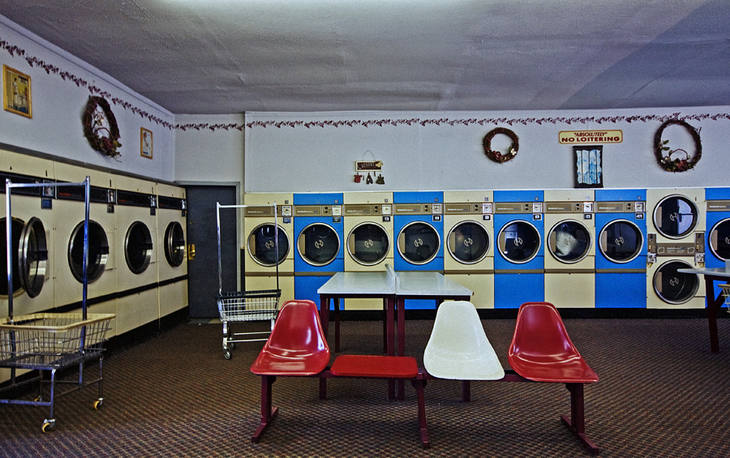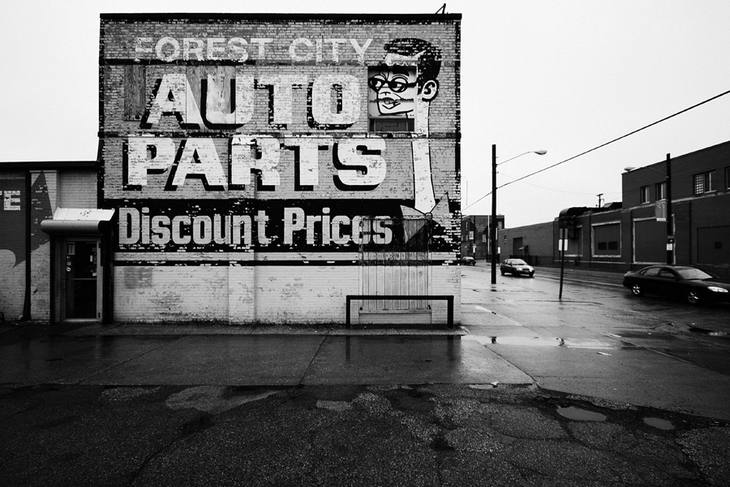
I wanted to add to the discussion taking place on the comments thread of the previous posting. The subject of beauty came up — so I begin this with a personal favorite painting, Joachem Wtewael Perseus and Andromeda, dated from 1611. The painting is in The Louvre, and last time I was there I stood for probably most of the morning staring at the figure of the woman. She seems more modern to me. Maybe late 18th century, or 19th century. She seems both a goddess and a cute barmaid. I’ve wanted to run away with her for thirty years…since I first saw this painting. Why does she look more modern? Well, I think its the mouth, the slightly proletarian features, the long waist and just slightly chubby fingers. Its a terrifically strange painting anyway, with the pinks and greens of the dragon, the shore of skulls, and the odd composition.
I want to come back to this, but I first want to sort of lay out a few thoughts the previous thread got me thinking about. It seems in some way that none of us are able to really discuss Imperialism, globalization, mass incarceration and the systematic war on the poor and a growing surveillance state in the U.S. and in western Europe, unless we talk about them through the metaphors and similies and examples of mass cultural product. Meaning, TV and film and marketing campaigns. Mass culture encircles us, and contains our ideas by co-opting our vocabulary and even our performances of ourselves.
The line between politics and film or TV is ever more blurred, and its not difficult to find examples of voters eagerly talking about Obama or Romney the same way they talk about soap stars or reality show contestants. If Obama approached a group of regulars on Lost, from far down the beach…his pants legs rolled up, and suit coat leisurly slung over his shoulder….nobody would think this all that peculiar. If Romney were seen doing a spot as himself on Big Love, I don’t think the morning chat at the water cooler would be very much different than it usually is.
Now, if we look back at the evolution of beauty in the 20th century, a different set of forces were in play from those that affected Joachem Wtewael. So, the way in which the economic realities have shifted since the Industrial Revolution, and certainly since WW1, it of course stands to reason that as our intellectual commons become more and more contained, the expression of dissent must somehow function from within the grammar of that containment.
If one looks back to pre Industrial economies — even Biblical ones — the individual is connected to the earth. It was also not abstract. The relationship to God may have been, but the earth could be equated with the economic. Various economic thinkers mulled over the increasing abstraction of economics, but with Locke the first clear expression of a universalist connection to monetary forms is articulated. Money is connected to the universal consent of mankind. Everyone gets what he deserves, essentially. Adam Smith just extended this, really.

Randy Martin says, ‘morality would be secularized in the social space of impartial observers through interpersonal engagements.’ Economic exchange. As nations came to be put to work in Industry, objective rules were established for exchange and for money. Everything added up at the end of the day, the bottom line equaled moral harmony. What I want to get to, however, was the shift in representation that coincided with the end of the gold standard. The shocks to global capital at the end of the 19th century, which brought about the 1933 London Conference that finalized an end to the gold equivalent to currency. That painting began to reject representation at this same time is, no doubt, somehow linked — but what is more important is how the master discourse began to enclose western culture… in other words, western capitalists began more aggressively to impose a narrative on daily life while at the same time they aggressively worked to control daily life. The narrative was to encourage conformism, and to erase history while constantly driving home the jingoistic messages of abstract terms such as patriotism.
The biblical economy linked to the earth on which one walked had become industrialized and increasingly anonymous… eventually de-linked even from gold, as one’s labor was de-linked from the final product being made. With the advent of financialization in the 70s…the next step to greater abstraction in economic matters took place. Capitalist society looked to more and more dominate, and to more and more enclose within its sphere of domination, the entirety of the planet. If that was impossible in concrete terms, it *was* possible in economic terms — in the rise of the investor class, the managerial class, and eventually in the arbitrager. Debt was bundled and speculated upon — and the post Bretton-Woods world of globalization seemed to push into reality a post modern aesthetic. If post modernism even exists, that is, if its even to be seen as seperate at all from modernism, then its role as ultimate simulacrum for real economics, then its useful to see it as a template for a new *individuality*, which rests upon a pedestal of mass irony and restricts itself to only surface while underneath the cyber transfer of profit and debt reached levels never before imagined.
The third world debt of course had to be narrated as moral turpitude, while western corporate wall street debt was seen as savy cool gordon gecko predatory capitalism. Reagan era delusions. The new menace was *inflation* — but by this point, economics was pure voodoo anyway, so it was mostly allegorical reverb on the great Imperialist Marshall Amp.
The sense of performing the role of ourselves took on real traction around the time of Reagan also. We knew of CCTV before that, and of reality network programming, but it jumped up exponentially after Reagan. The specific needs of growth expansionist capital created the fictional figures for the great master discourse that needed to played on a never ending loop twenty four seven.

To return a bit to Hollywood features and network and cable TV, it’s useful to see notions of beauty, but also of masculinity and femininity, and what part of these notions were affected by both the enclosing of public life, literally, and also metaphorically. The mediation of culture by a hegemonic advanced capitalist system. I think what I have to call the destabilizing elliptical inwardness of Spencer Tracey, was linked to the intuitive awareness of shrinking inwardness itself. The assault on quiet and the regulation of leisure and a message that drilled home, *you are happy*….*you are happy*….* you are happy*. Tracey was not happy. That sense of performance, today, would run into conflict with a prevailing narrative of adjustment. The physical perfection of Tom Cruise or Brad Pitt, or whoever one picks —of today’s leading men — the gymnasium bodies, the perfect abs (now the most fetishized area on the male body), the nip & tucks, are absolute unification of message — irregularity is minimized; the Mickey Rourke tragedy of plastic surgery gone wrong, now worn as a honorary badge of displaced masculine perfection, an implant survivor unafraid, an Oprah guest. Of course Rourke felt the need to re-write the script of self the better to somehow re-energize the subject of authenticity.
There is a side bar to *authenticity* running throughout the celebrity culture. Such is the anxiety over one’s self performance. I might actually BE Max Headroom. There is a nostalgia for a cartoon great white hunter masculinity… and not just a well regulated seamless picture of self, divorced from the concrete that is the test tube quality ideal under absolute management.

This sort of takes us back to questions of realism, of versimilitude, and of criterias shifting. The *actor* who feels a pressure to be *convincing*, to be *believable* is an actor who has lost the artifical ideal of a certain virtuosity. John Barrymore to John Guilgud, remained acutely aware of their own expertise. Orson Welles certain did. There was never a question of absolute duplication of reality. These were actors who were there to improve upon reality.
So, the meaning, increasingly, of the post modern actor is divorced from what is being said…from the concrete lines of dialogue. It may even mean from the sequence of images in the film. The Shakespearean actor of 1890 meant what he said, and the audience heard the meaning of what was said. There were no doubt a host of other factors at work….but by and large there was a linkage, and it wasn’t based on realism. It was based on the text.
Today, the cunning of the forces of financializtion…as it were…..of global capital, of an advancing surveillance state, tend toward more and more distance between meaning and performance and text. All three have been spaced…and the performer, the actor, is increasingly absorbed with her or his own branded identity.
Lets think for a moment about public figures who are NOT actors. The quickly dissapearing public intellectual. Now, corporate media isn’t going to go find Michael Parenti very often, or Rosa Clemente or Glenn Loury. So what passes for *serious*, are historians such as Simon Schama and worse Niall Fergusson. They are brands. And their public performances are as repetitive and banal as any of those by Tom Cruise.

There is, in fact, so little content in a Fergusson op ed, or monograph on whatever historical fiction he is pursuing at the moment, that almost the entirety of Fergusson’s meaning resides in his brand of contrariness. What we talk about is the brand, not the ideas. In a sense, like Schama, the actual historical facts are subsumed by rhetorical flourishes and their recognizable brand of (soft of hard) reactionary political theatre. On the left is Zizek — the brand of infantilized racism and apology for empire, whose performance is targeting, it would seem, twelve year old boys — and that in fact he is a college circuit favorite, only speaks to the prolonging of the infantile in our post modern empire of emotional and intellectual regression. The Jodi Dean and Wendy Browns occupy another niche market for intellectual theatre and branding. Dean the suburban kindergaten teacher speaking to a group of barely attentive three year olds….all of whom cant wait for their orange slices….spews out empty almost meaningless *theory*— none of which is one able to pin down enough to even criticize. This is an unfortunate branch…a big branch …of the academic left, and its spinning a sort of apologia for conformism and adjustment. I will have to return to the specifics at a later date. The relevance for this posting though, is that again, the performative nature of these public figures is predicated on surface idenitifying characteristics. Zizek and his wrinkled t-shirts, or Dean and her fake housewife substitute teacher voice from 1955. All of them are white. This is not an accident.
For even a pretty straight public figure like Michelle Alexander, manages not to do this at all. She looks pretty conservative in a way, well turned out, a lawyer….and yet, what she says is free of branding. Her identity fades and her words float before one…solid and with meaning.

The performance of comedy is certainly worth mention here. As a small example of the shift…..
Sheldon Leonard as the gangster — a precursor to Tony Soprano, but George Burns and Gracie Allen were doing something pretty different from, say, Seinfeld. Without going into huge detail, the sense of shared victim-hood was the basis of Jack Benny or George Burns and Gracie Allen, or Phil Silvers even. We the viewer are invited to suffer along with Benny or Burns. Because that is the world created…one in which everyone suffers. In Seinfeld, only those hip enough are invited in. The audience is flattered, well, OK, you are hip, too, and so you are allowed in to laugh AT the victims. The comedy, mostly Jewish, that came out of the early 20th century via Vaudeville, was the comedy of suffering and of sharing. The comedy of Seinfeld or Adam Sandler is one of sadism and resentment, of privilege. Ben Stiller, the child of celebrity, reflects this even when, it seems, he is trying not to. Sgt. Bilko….a character of absolute humility, even in the guise of the army fixer, the insider boss….and yet, still, the humanity of an oppressed class is a basis of the performance.
Today, the master narrative insists on metaphors arrived at in relation to economic abstraction— the financialized world of derivitives and arbitrage. They are imposed from above, and erase allegory, as they ever more hysterically demand attention. The *system think* of the post WW2 sociologists, and the post Keynsian monatarists were joined together by the children of Edward Bernays. The Madison Avenue marketing firms began to reflect the influence of earlier versions of themselves. The loop was closed. Hollywood began to borrow its own story lines, covertly at first, and then openly. Such is the poverty of imagination that even Sgt Bilko was remade. These empty exercises in creative exhaustion are never performed with much enthusiasm. Steve Martin’s brand of house intellectual for white liberals never strays far from the dominant script. Compare for example to Richard Pryor. It may be that Pryor was the final act of a certain comedy that began in Vaudeville, included Lenny Bruce, and ended as tragedy with Pryor. Pryor was too painful, the suffering became foregrounded in ways that shattered the presentational structures.
That Pryor’s authentic genius was so undeniable, that the ideological insistence on equilibrium and balance simply frayed and unravalled — the return of the concrete won’t be tolerated.
Derivatives are the last step in distancing from the actual product….the reproduction of the subject however is demanded in more and more rigid fashion. A sense of the robotic in actors like Cruise, or of the sadistic guard or jailer in Sandler, echo these shifts in the economic pagent being played out in China’s buying of U.S. bonds. The mirage of the U.S. dollar, the last uncertain symbol of American exceptionalism is replayed as techological magic and expertise on the countless military and espionage dramas that repeat constantly on network and cable TV. The strange hallucinatory tension between a real surveillance state, and the fictional version is the stuff of insanity. The computer keyboard and the geek manning it have replaced the gunslinger in post modern narratives. In Independence Day the alien spaceship is PC compatable. The reified relationships to appliances, a man and his blender have replaced the horse. The expensive car is now so openly a symbol of phallic potency and domination that is almost passes unremarked. It is also the most clear class marker available (and more on that later).
The uncanny, that register of experience in which the picture of the real is supplanted by forgotten urges and instincts, the witheld mystery that suggests our desire to restore primordial silence, is as a matter of course rejected by institutional theatre and corporate media.
When actors do appear who seem suddenly to have walked onto the wrong set, who emobody something of the uncertainty of our dream work, they are usually met with domesticating forces so powerful that they either perish, literally or career wise, or they are re-packaged — made into their opposite. When Angelina Jolie did this bio pic about Gia Carangi, her first film, the potential for her to become something almost unseen in American actresses was palpable. But within a year or two we got Laura Croft Tomb Raider.
This would lead us back to questions of beauty. The fascistic dimension of beauty, the power it confers, and the unstable dimension conjured up must always be, I suspect, beyond the confines of the imposition of a top down narrative.

Financial unreality, the ever more abstract nature of debt dependency expressed via the IMF or World Bank, the neo-Imperialist savaging of the third world, of the poor, and its expression domestically in a war on drugs and mass incarceration, is discovered in its fraudulence in aspects of beauty — but this identification of what is beautiful has obvious ideological mediation. The particulars of that are something I will continue with next posting.

Great.
I want to add all kinds of thoughts. I should this time take a moment to order them properly.
For now:
A message from a former President:
http://front.moveon.org/martin-sheen-calls-out-the-fear-mongers-in-under-two-minutes/#.UEM2cWo4PyY.facebook
“Romney said absolutely nothing for 20 minutes, spoke to the crowd like they were nursery school students – and they cheered. He mentioned global warming and they laughed. He mentioned war and they roared like spectators at the Colosseum. Clint fell from grace for all the world to see and the Republican Party practically kicked him in the pants on his way off the stage. He may as well have stood in front of the crowd and pissed his pants, crying. And, still they laughed and cheered. I need a bath.” –Lennie Loftin
Ellen DeGeneris praises Clinton
http://youtu.be/omfKCzGY6S4
This is actually more disconcerting collision of worlds than the idea of Obama on Lost:
http://youtu.be/kvIxOSb2jCQ
How generation;
http://youtu.be/vau6oQzM_PE
How… the fuck did this happen?
http://opinionator.blogs.nytimes.com/2012/09/01/between-the-acts/?hp
i mean the first couple exchanges are pretty revealing…..
John– a lot to digest, but immediately: you are spot on about Pryor. Talk about uncanny. What RP learned to do was to “play himself” (a positive, not a pejorative) as character, not persona- & never to funnier effect than in his red suit Sunset Strip show; with pathos that comes to a staggering summit in that final segment. Jokes are fine (nix on Seinfeld, agreed) but many comics, actors, writers play them as jokes, play the persona, which too often involves facile know it all-ism, and smarm, snark, & as you point out: laughing at victims. By playing character, I think RP operated with humility, not humiliation, and with a vulnerability that was downright scary.
It was quite enticing.
Twitter had a tweet on the t-shirt warehouse, and lead me here. There are a variety of ways you can go if you want to make custom T-shirts. There’s digital printers, plot cutters, and even custom transfers, but screen printing is the best way to produce a lot of T-shirts at a very low cost per unit.
well is say just Whenever you arrived at our site, the first you should know is you can buy the highest quality and most expensive ipad case, additionally your favorite apple ipad cases as well as ipad add-ons. You will find hundreds types of ipad situation